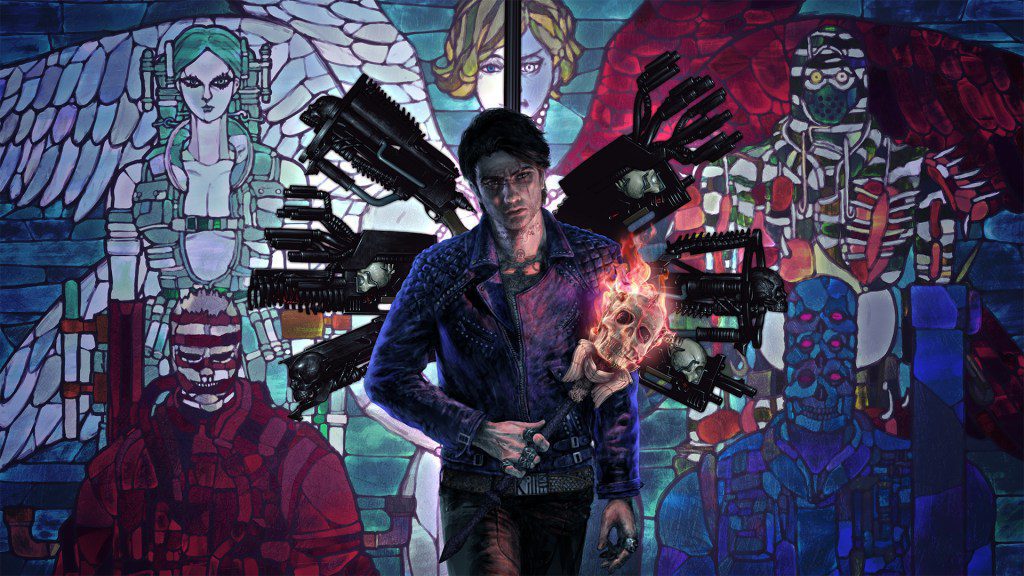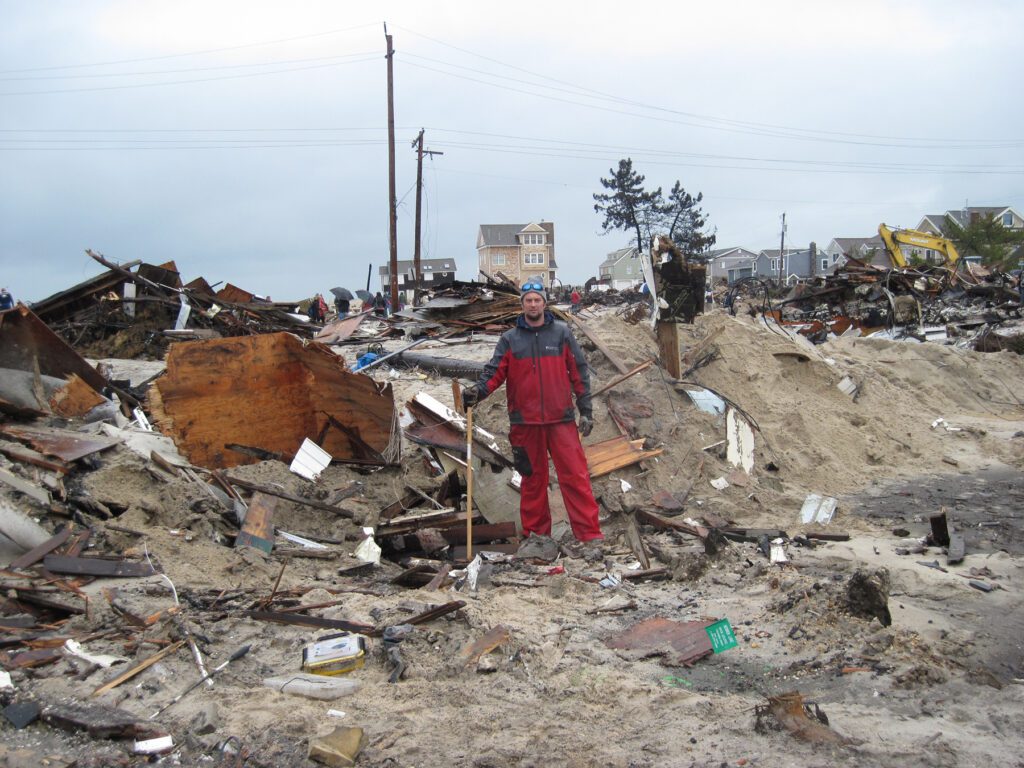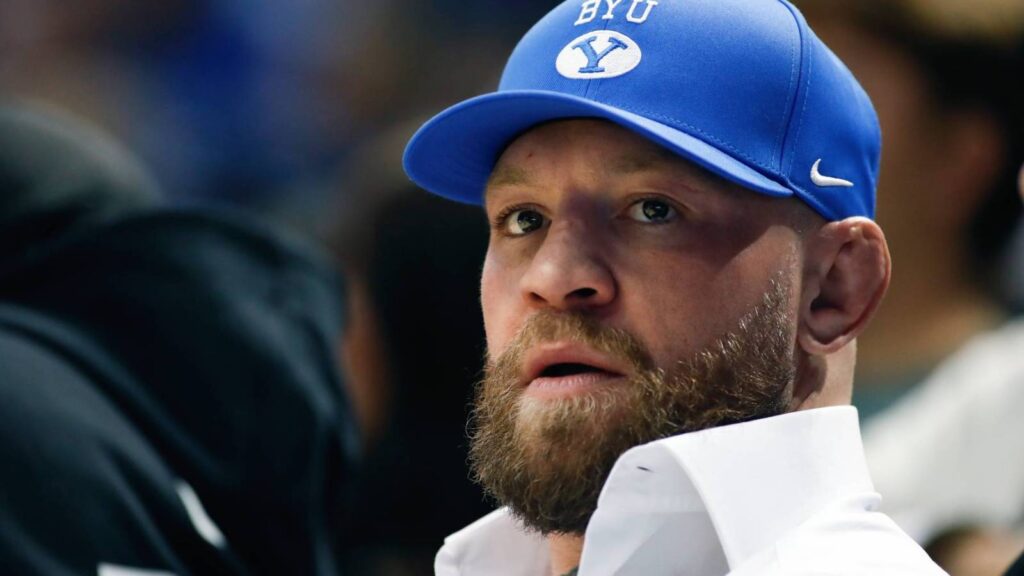Inside the Mind of Suda51, One of Gaming’s Most Gonzo Auteurs
For over 30 years Goichi Suda, otherwise known as Suda51, has been one of the gaming industry’s few true auteurs. His calling card is imbuing familiar genres with unconventional twists, whether it’s making the hero’s journey a tragedy in Super Fire Pro Wrestling Special (1994), a cel-shaded adventure game take on first-person shooter in Killer7 (2005), or a lovable dirtbag of a hero who has to mow lawns to fund his dreams of becoming the world’s top assassin in No More Heroes (2007).
His latest project, Shadows of the Damned: Hella Remastered (released Oct. 30), is an updated version of the 2011 collaboration between Suda51 and Resident Evil creator Shinji Mikami. It’s a brash road trip through hell, as brutal as it is funny with an important bit of Japanese culture represented in the relationship between protagonist Garcia Hotspur and his wise-cracking gun/sidekick Johnson.
Rolling Stone recently caught up with the off-kilter creator to talk about the societal importance of comedy, probe for clues about his next project, and find out what it’s like inside the mind of Suda51.
This interview has been edited for length and clarity.
Demon’s and Dick Jokes
For anyone who doesn’t know, what is Shadows of the Damned?
It’s kind of like Super Mario Bros., but in hell. You’ve got Paula, who would be Princess Peach, and you’ve got this demon hunter named Garcia Hotspur, who has to dive into hell to go save her from the demon Fleming, who is kind of representative of Bowser. It’s like a much more fucked up version of Super Mario Bros., as far as the story goes.
You’ve said before that Garcia Hotspur went through many iterations when you originally developed Shadows of the Damned. What was the basis for his final design?
There are basically two things. The first one is the actor Benicio Del Toro, and the second one is a very famous Japanese manga series called Crows. There’s a group in Crows called The Front of Armament, or TFOA. I really liked the style that this specific group had. The main image that I based Garcia’s personality on was Mario, the really strong love that he has for Princess Peach and his spirit, his willingness to do whatever it takes to go literally through the depths of hell to save the woman he loves.
The game is well known for its innuendo and references. Is that built-in during that early planning or is that something that happens organically throughout development?
As we made the game, a lot of it happened organically. We’d be making a level and think, “Oh, hey, this kind of reminds me of this,” or some staff member would say, “Hey, let’s add this joke in here, or let’s reference this movie or this game right here.” Some of it was stuff that I thought of, and some of it the other staff thought up. As we were designing and fine-tuning, the levels that had more jokey stuff tended to turn out well a little bit more easily. And so it’s not that the game was built around that, but it just sort of worked out naturally. And not only did that kind of stuff organically pop up, but the way the game was being made fit with having these references and dick jokes in it.
Shadows of the Damned: Hella Remastered is an updated version of the 2011 original.
GRASSHOPPER MANUFACTURE INC.
Do you know what direction you would take a sequel? Is that something that you have thought about or planned out?
As far as the details of what kind of game or what type of story it would be, honestly, I haven’t really thought about it that much yet. But there are two things that, if possible, would be cool to make someday. One of them would be a VR version of Shadows of the Damned. For the sequel, I feel that Shadows of the Damned would match well with VR. Maybe like a Time Crisis in VR type thing. And the other thing, I’m personally really interested and invested in the character of Fleming, and want to dive deeper into this guy and do something with him. I don’t have any sort of concrete ideas yet but would like to have something that focuses a lot more on Fleming and his battle with Garcia, how they came to be like this, and maybe where Fleming came from. One thing that I’d like to do is add some sort of super crazy twist to it. No idea what that twist would be, but some kind of super crazy twist, having to do with Fleming.
The importance of comedy
Something that we see a lot in your games, whether it’s Shadows of the Damned or No More Heroes, is a lot of comedy. What are some of your comedic influences?
In Japan, comedy is an important part of culture, and it’s a really important type of culture itself. It’s been like this since way back in the day. There are a lot of variety shows in Japan and the majority of them will be hosted by a comedian or a group of comedians, or you’ll have panels made up of at least half comedians. Comedians themselves are considered sort of high up in society, but not in a snobbish way. They’re an important part of not just the entertainment industry, but society in general.
There was this legendary Japanese group of comedians called Drifters. Even if you didn’t watch them, everybody knows who they are. Everyone’s seen them. Everybody knows their most famous gags and stuff. There are also two guys called Downtown, and for the past twenty-five, thirty years or so, they’ve pretty much been considered the pinnacle of Japanese comedy. Not just the kind of vaudevillian two guys joking around with each other on stage, but even just as individual comedians. If you’re in Japan and you grew up watching TV, you’ve seen these guys. You’ve been surrounded by them your whole life, you know all the references.
Do you know the show, Workaholics? Unfortunately, it’s unavailable in Japan. It’s never been localized, as far as I know. My wife and I are literally the only Japanese people I know who even know that show. But a couple of years ago I happened to see it on an airplane, and I watched all the episodes they had loaded on the entertainment thing there. And Adam DeVine in particular, I think he is hilarious. Their style of comedy is so funny. I can guarantee you’re not going to hear another Japanese game developer telling you that they’re inspired by Workaholics!
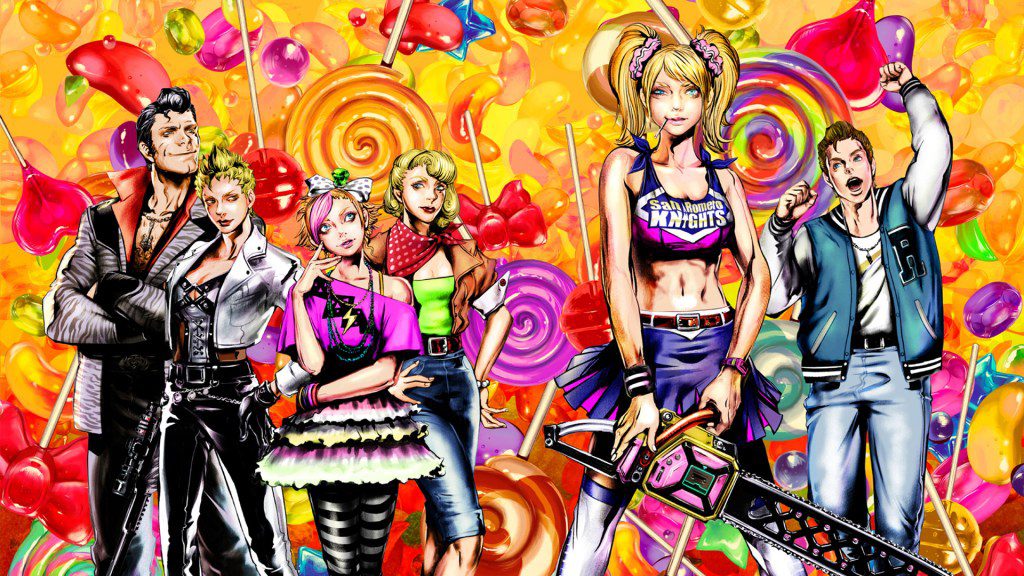
Lollipop Chainsaw RePop is another of Suda’s past collaborations remastered for 2024.
Warner Bros. Interactive Entertainment
Is Japanese comedy very different from the comedy that we are used to in the West?
Yeah, there are a lot of really big differences. One of the main differences is, that in Japan, we have this style of comedy called Manzai, which is like old vaudeville Abbott and Costello-type stuff. You’ve got sometimes three, but usually two guys up on a stage. One guy is the guy who says something stupid, and the other guy is like, “Oh, what the hell are you talking about?” And like, slaps him. That kind of died off in the 1930s or Forties in the States, but in Japan, that’s still going strong.
One of the big end-of-the-year events for Japanese people is the show called The M-1 Grand Prix. It’s basically a contest between all these up-and-coming stand-up comedians, and most of them are duos. If you win this, that’s like your ticket to automatically becoming a superstar. You’ve got it made now. It’s the kind of thing that you don’t really see in the West very often. You’ve got more individual stand-up comedians, whereas here you’ve got the duos and trios and stuff.
You mentioned those duos and things like Abbott and Costello, and I can’t believe I didn’t think about how that is so completely Garcia and Johnson.
Exactly! So Johnson and Garcia, their relationship and the way they kind of go back and forth, that’s based on the Japanese Manzai style of comedy. In Japan, when you have a Manzia duo, the roles are pretty strictly defined. You’ve got one called the Boke character, and one called the Tsukkomi character. The Boke character, which would be Johnson, is the one who will make a mistake on purpose, or make a stupid joke. And that Tsukkomi character is like, “What the hell are you talking about?” Or just, “shut the hell up.” He’ll chide him or say something really sarcastic to kind of counter him. You’ve got the kind of dumb nice guy and the sharper, sarcastic, meaner guy. That’s exactly where that dynamic comes from.
Past and future
Previously you’ve worked on a lot of different genres, like visual novels and wrestling games. Are there genres you haven’t done in a while, or haven’t done yet that you’re interested in doing?
I’d like to try an adventure game. Not just full-on action adventure, but much more adventure-based. When you are making an action game, the action is the core loop. You have to focus most on the action. How do you keep that interesting? How do you keep that fun? But for an adventure game, it relies a lot more on the story. The adventure and the story become the core loop, so you have to focus more on how you make that interesting. How do you keep up people’s interest in that? For the first time in a while, I’d like to try making a game with more of a focus on that side of things.
Are there examples of modern games that you think do that well?
They might not be super recent, but the first thing that comes to mind is the kind of games that David Cage makes [like 2018’s Detroit: Become Human] . They’re very adventure-focused, and the adventure is really well done. You can tell that he put a lot of work into the adventure part and thinks a lot about what he’s doing.
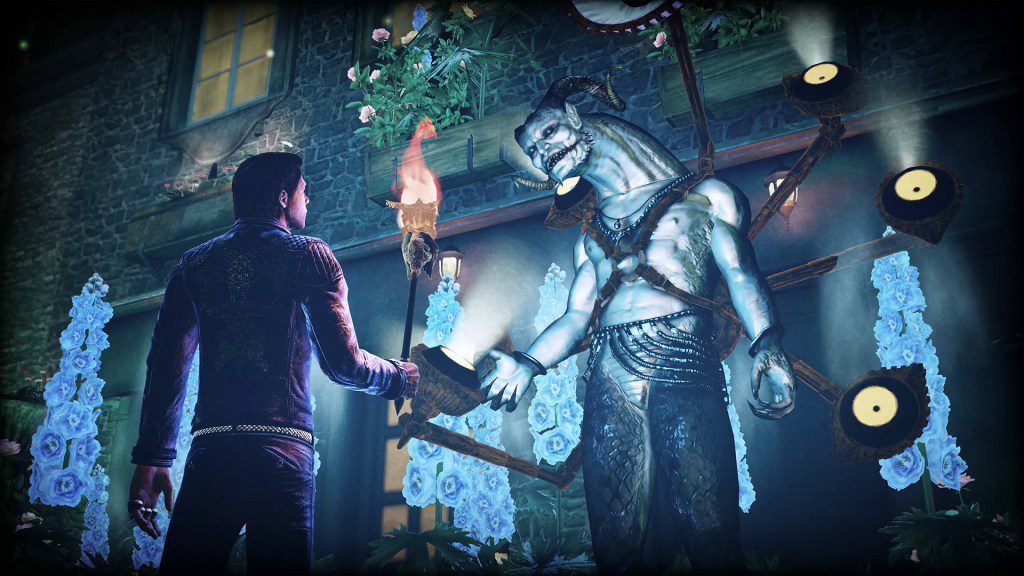
Although frequently gory, Suda’s work is never lacking for style and is often compared to that of filmmaker Quentin Tarantino.
GRASSHOPPER MANUFACTURE INC.
Speaking of looking into the past, I’ve always been very fascinated by Fire Pro Wrestling. What would a Suda51 wrestling game in the year 2024 look like?
It is not something we’re concretely planning on making right now, but I’ve got a plan for a game that I’ve had for a while, something I thought up a long time ago that I’d really like to make someday. And it would be a modern-day Suda 51 wrestling game. I definitely have something in mind already.
It would not be only a wrestling game, with just straight-up two guys in a ring, it would be a game that portrays the life of one specific wrestler, his ups and downs, and everything he goes through, but it would technically be a wrestling game. But that’s all we can mention at this point because there’s a high possibility that we may put this out one day.
We are just a few years away from the 30th anniversary of the beginning of your studio, Grasshopper Manufacture. Do you allow yourself to look back and appreciate the things that you’ve done, or are you always focused on the future?
I tend to focus more on what’s coming up. Not just what we’re working on right now, but what we want to do for the future, what kind of game we want to make, and where we want to take the company in the future. We are still two and a half years or so away, but we’ve got our 30th anniversary coming up, which is a pretty big milestone. So at that point, I’d probably like to take some time and look back at everything we’ve done up to this point, and how we want that to reflect on what we’re going to be doing in the future. We don’t have any kind of concrete plan or anything. But one idea that I had was maybe talking to Devolver Digital and being like, “Hey, it’s our 30th anniversary, could we maybe do something together now?”
Something that you are well known for is the high-profile collaborations you’ve done over the years with (Resident Evil creator) Shinji Mikami, with (Superman director) James Gunn, your radio drama with (Metal Gear Solid creator) Hideo Kojima, and things like that. Who else would you like to collaborate with?
There’s not necessarily a particular person or game studio that I want to collaborate with, but there are a few people that I’d like to try working with, and there are some IPs that I would like to collaborate with someone on. For example, some Marvel and some DC stuff. I’d like to do Batman, and in particular, Batman Black and White. That’s a game that I wanted to try my hand at for a long time. Marvel-wise, it would be Deadpool. I’ve been wanting to make a Deadpool game for a long time. Also, another game that I’ve been wanting to try to make for a long time would be Gundam. I would love to try to make a Gundam game.
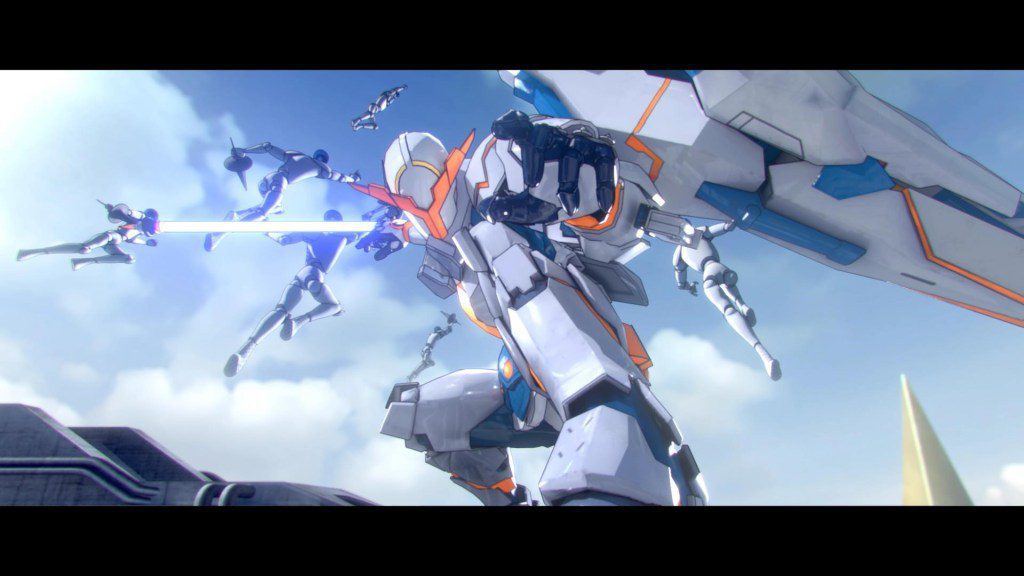
A sequence from No More Heroes III (2021), inspired by the developer’s love of the Gundam franchise.
GRASSHOPPER MANUFACTURE INC.
What’s the best Gundam?
Movie-wise, it’s Char’s Counterattack (1988). And as far as my favorite Gundam, It’s called Exia from Gundam 00 (2007).
You’ve mentioned a few times that you’re a big Marvel fan. Who is your favorite Marvel superhero?
I’m a big fan of the X-Men. If you had to pick one, I would probably say Wolverine. I love Deadpool too, but I like Wolverine the most. For one thing, he’s cool as shit, and he’s also got a lot of connection with Japan, in the movies and the comics both. He has Japanese villains and collaborators, partners, and stuff like that. I have kind of an extra special place in my heart for Wolverine.
Here in the United States, Travis Touchdown is probably the most famous character to come from Grasshopper. But do you have a favorite character that you’ve worked on or a character that you feel doesn’t get enough love?
It’s kind of hard to choose between the two, but the first would probably be Travis Touchdown. Travis is sort of like a part of myself. I put a lot of myself into the character, and it’s really easy to write scenarios or stories for this character. We’ve been through a lot together over the years. So that’s probably the simple answer, but another character that’s also not only in the running but a character that I wish people would recognize a bit more and give a bit more love to is one of the main characters from The Silver Case, Tetsugoro Kusabi. That’s the first game that I did as Grasshopper Manufacture.
When I wrote that character, I again put a lot of myself into him. I wrote this character as the kind of adult that I wanted to become in the future. I thought, “Okay, this is what a real man would be like and this is the kind of man that I want to become.” And so partly because of that, I have a really special place in my heart for Kusabi. Sometimes people ask “When are you going to bring back this character or this character.” If I’m going to bring him back at this point, it would have to be a story where he was the main character, his story, and everything revolves around him. I can’t just whip the guy out for [a cameo]. I wish more people would recognize the coolness, or more people would give a bit more love to Tetsugoro Kusabi.
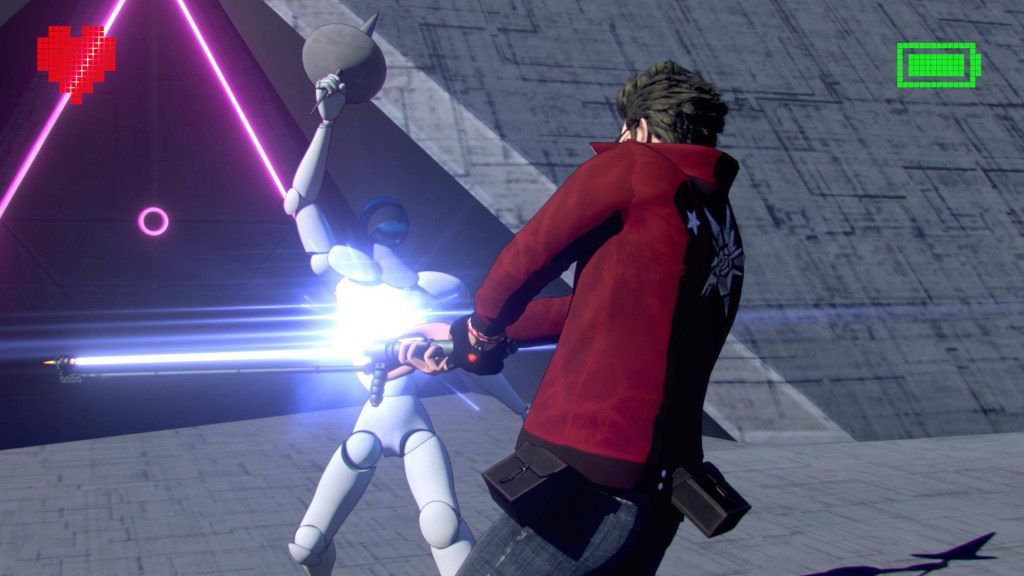
Travis Touchdown is the protagonist of the No More Heroes series, Suda’s most famous creation.
GRASSHOPPER MANUFACTURE INC.
You became a director just a few days into your first big job in the industry. What advice would you give to yourself, looking back just starting in the industry?
If I had had somebody like my current self give some really important advice back in the day, then the Suda51 that you see here probably wouldn’t exist today. He probably wouldn’t have made it this far. He probably wouldn’t have been able to do a lot of the stuff that he’s able to do because he probably wouldn’t have been able to put out the work that was needed to get this far. I would hold back on giving any sort of advice and just let the dude turn out the way he’s going to turn out.
Inside the Mind of Suda 51
Can you tell me a little about your creative process? How do you decide what things become part of your game or your story?
The first thing I think up is just a general idea for the plot. I think up the opening scene, or the very first part of the game, and I think,” Okay, how can I make this scene something that’ll grab the player, something that’ll pull them in and make them interested in the game?” And from there, I branch off. What’s going to spring out of this, what kind of issues are going to arise?
Do you think of that image of the game and its opening before you think of what type of game it’s going to be?
I generally decide on what type of game it’s going to be first. But in general, our games are action or action-adventure games. So it’s probably going to end up being an action-adventure game anyway. But first I decide exactly what sort of genre of game I want to make. And from there I decide the kind of opening scene I want to do and the kind of plot that I want to have. But the genre and type of game are definitely first.
Do you like to give your team a lot of room to come up with things, or do you prefer to be very hands-on with everything?
It’s a big dilemma for me as far as which style is best, not only for myself, but for the company, the games we put out, and for each staff member too. When I first started Grasshopper I was very hands-on with everything, every bit and piece of the game. I’d make sure it was exactly how I wanted it because I had this image inside my head. But after a while, I started giving the other staff members a bit more freedom to make things on their own and come up with their own ideas, put in their own personalities, and apply some of their own vision to it.
Being hands-on with everything and making sure that everything goes smoothly and is exactly the way that I have it in my head is my natural state, so it’s a bit easier for me to do things that way. But considering the good of and the future of the company, the other way is probably best, allowing people to have a bit more freedom when they create, and giving them room to grow and develop on their own as creators. So I try to keep a balance between the two.
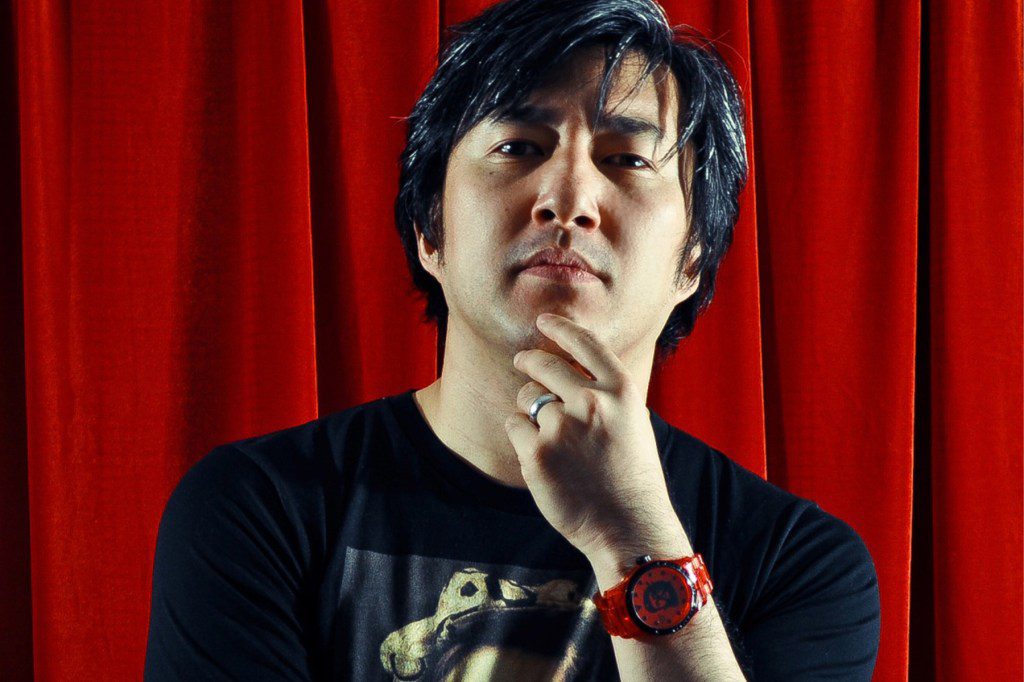
Goichi Suda, otherwise known as Suda51.
GRASSHOPPER MANUFACTURE INC.
Can we talk about some of your film influences?
There are a lot of movies, directors, and even specific characters that I’ve been influenced by and gotten inspiration from. For example, a lot of the stuff in the No More Hero series was inspired by El Topo (1970), by Alejandro Jodorowsky. It’s a weird, cool movie, but it’s kind of a cult movie. Also, the name Travis Touchdown came from the character that Harry Dean Stanton plays in the movie Paris, Texas (1984), which is one of my favorite movies. The character is completely different, but the name itself was an inspiration.
As for Shadows of the Damned, there’s a movie called Crazy Thunder Road (1980) by director Gakuryū Ishii (known as ‘Sogo Ishii’ at the time), a lot of his work, in general, has been a big influence for Shadows of the Damned. Another filmmaker or artist who’s been really influential is Derek Jarman, who did a lot of the videos for The Smiths back in the day. To bring up some more recent stuff, I guess you could even kind of say maybe a bit corny, but I’m really into the Marvel movies. I watch every single Marvel movie, so recently, the Marvel movies have been a big influence.
The music is always a very big part of your games. How does that relationship work between the music and what you create?
I’m very into music in general. Whenever I’m writing scenarios, I’m constantly listening to music. Music, scenario writing, and game creation in general, they’re inseparable. Most of the time, I only listen to music that I’m already familiar with, that I know that I like, and it’s kind of the same stuff on loop. But every once in a while, I will just happen to hear something on TV or the radio or from a game or something like that, and that’ll sort of pop an idea into my head.
But usually, I will be listening to a specific band while writing a specific scenario or game, or sometimes even listening to the same song over and over. And that not only pushes me to keep going and keep pressing on but I get inspired a lot by the music that I listen to while writing.
Again, I can’t make games without music, they’re just completely inseparable. Not only the music that I listen to while making a game but the music that goes into a game and the way the music is used in the game are really important aspects and elements.
What are you listening to right now?
Recently, I have been doing a lot of rewrites, brush-ups, and additions to the scenario for the next game that we’re currently working on. And there are three artists in particular I have been listening to a lot. They would be Brian Eno, Mogwai, and a relatively recent Japanese band called D.A.N..
There’s our first clue into what might be coming.
I’m trying to think of a hint I can give you that won’t be too spoiler-ish. There’s one movie or series in particular that has had a huge influence on that game. I know that’s vague as shit, but when you see it, you’ll know this is definitely what we were talking about at that time.
Sort of like Shadows of the Damned or No More Heroes, the main character is pretty badass this time around too.


